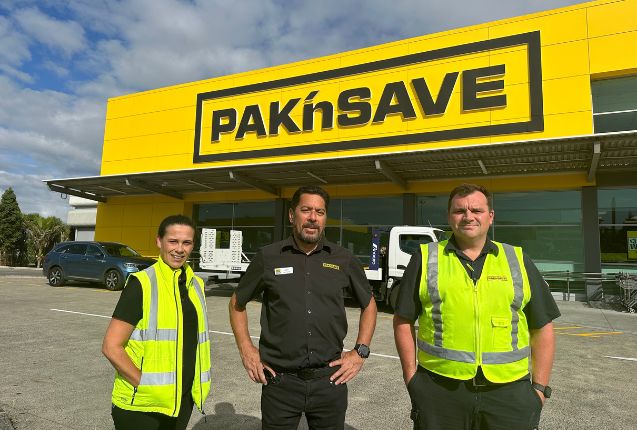Research by New Zealand’s leading search engine optimisation (SEO) specialists has uncovered new insights into how New Zealanders have been engaging with search engines over the past year, and what the coming year’s trends are likely to be.
Using anonymised data collected from 200 Google Analytics accounts and 548 Google AdWords accounts, Pure SEO’s 2018 New Zealand Internet Search Trends and Insights report represents the largest ever analysis of New Zealanders’ search habits. This information will be invaluable for informing FMCG businesses’ digital marketing strategies.
Pure SEO’s Chief Executive Officer Richard Conway says search engine marketing (organic and paid) is a highly specialised discipline that is constantly evolving, creating new challenges and opportunities for FMCG businesses, business owners, marketers and advertisers. So much so, that what held true a year ago may no longer be true today.
“Google regularly changes its algorithms, making it challenging for companies, other than Google partners, to keep abreast of the changes and the resulting impact on their organisation’s visibility on the Internet.”
Pure SEO’s analysis of Internet searches in New Zealand for the year 1 January to 31 December 2017, identified insights that include:
- Searches via mobile have now started to overtake searches via desktop and tablet.
- Voice is contributing to mobile searches and must be considered when creating web content – Apple’s Siri and Google’s Assistant are driving this trend.
- Web visits driven by organic searches increased numerically but decreased slightly in proportion to visits via other sources, including paid search, social, referral traffic, direct traffic, etc.
- Social media is increasingly driving traffic to websites.
- Google’s dominance in New Zealand continues to rise.
- Google Shopping spend is increasing.
- Google’s extended text ads (ETAs) have a higher click-through rate than standard text ads, so business still using standard text ads should change to ETAs.
- Google AdWords spend is steadily increasing as businesses incorporate more search advertising into their digital marketing strategy.
Conway said some of the findings came as no surprise, but others have significant implications for the future.
“Organic traffic share is increasing overall but declining slightly relative to other sources, which is very interesting and may be due to one of the most controversial things that Google is currently doing.
“Historically Google and website publishers have had an unspoken agreement whereby publishers push out content and Google drives traffic to their websites. However, this has shifted in recent years, with Google trying to keep people from clicking away from what it directly controls by attempting to engage them via its own knowledge bases such as Knowledge Graph, Instant Answers, Live Results, videos, carousels and more.
In other words, website owners are creating content that benefits Google by providing search content (and therefore user-related data) but Google is increasingly ringfencing this content and avoiding returning the favour of linking searchers to websites.
“Good SEO gives would-be customers a positive perception of one’s business so Google’s ringfencing is naturally causing some consternation. Website owners can help themselves by developing content that answers commonly-asked questions; this is particularly true for retail websites because there are a multitude of product and delivery-related Q&A that could be posted. Doing this increases the website’s likelihood of appearing in Google’s predictive answers that come up in response to questions typed in search. Useful content mechanisms can include: FAQ sections, bullet points and numbered lists.
Conway says it will also be interesting to see how artificial intelligence (AI) influences search trends over the next 12-24 months.
Google’s RankBrain (algorithm learning AI system) is becoming more important in search. Although Conway says he always advises people to never cut SEO corners because doing this could be the website cut from Google’s rankings altogether, he suspects that some unscrupulous people may try and manipulate results using AI. It also has implications for how people whose job it is to optimise AdWords and other paid digital advertising campaigns compete with AI – something had Mr Conway feels would be difficult to do in any search campaign with a large amount of data.
“Adwords will need to be thought of in a far more strategic way in future, moving it away from the commoditised exercise it is tending to be now.
SEO and Google AdWords have become an integral part of the marketing mix for many New Zealand FMCG businesses. Conway says these will remain valuable tools for the foreseeable future, but it is important for businesses to understand – and move with – the trends identified in the report.
Seven digital marketing tips for 2018
- Optimise for mobile
It is now more essential than ever to optimise SEO and AdWords campaigns for mobile by adopting a responsive design (or better still turning key web pages into accelerated mobile pages that are designed to load very quickly on mobile devices), improving the website’s page loading speed, and optimising web content for local-intent and long-tail keywords.
- Promptly respond to Google updates.
Staying up-to-date on the latest Google ranking algorithm changes will help retailers adjust their SEO and pay-per-click campaigns to get the best results, and to maintain or improve ranking positions.
- Consider Product Listing Ads
If they have not already done so, retailers and e-commerce businesses are strongly advised to consider product listing ads to get their products to rank well on search engine results pages.
- Optimise for user experience
There is increasing competition for organic and paid search deliver an optimal user experience – particularly for those searching on mobile devices. Websites should load quickly and be easy to navigate.
- Invest smartly
Organic rankings require long-term investment but achieve lasting results, while sustaining a first-position advertising rank will gain quick clicks but rapidly rack up costs. Sticking to a budget aligned with specific goals will help businesses stay on top of digital marketing expenditures.
- Cover all digital marketing bases
There is no magic bullet so cover the business for all possibilities by having organic and paid search components that complement each other. If SEO growth slows, then Google product listing advertisements and paid search advertisements will still have the business covered.
- Don’t try to manipulate the system
Google’s continuous algorithm updates have made it more difficult to game the system and get higher organic rankings without earning them. Websites engaging in such tactics will swiftly be discovered and punished by Google.
The full report can be viewed at: http://content.pureseo.co.nz/new-zealand-internet-search-trends-and-insights



